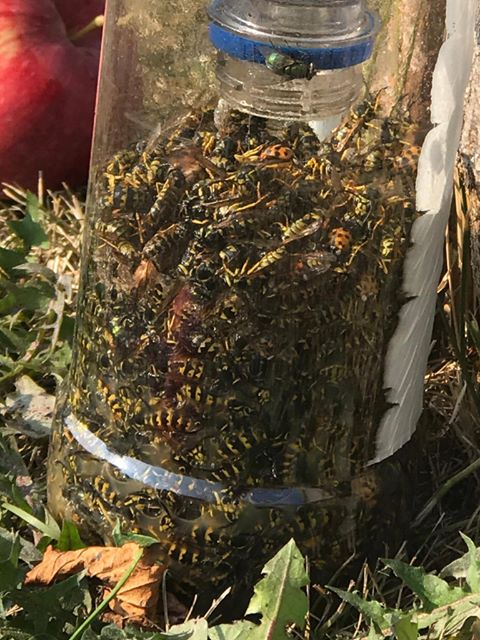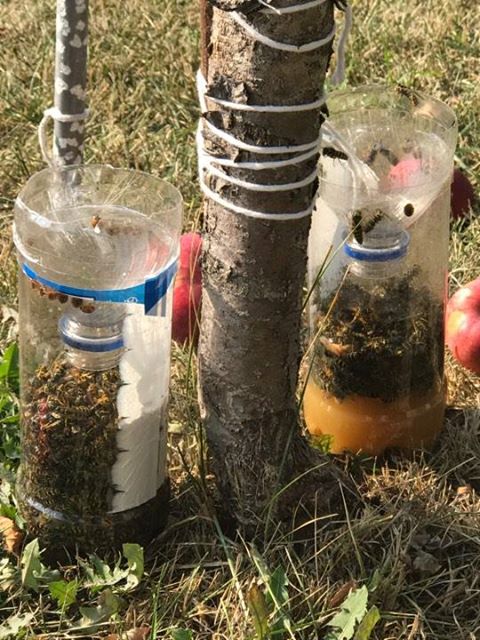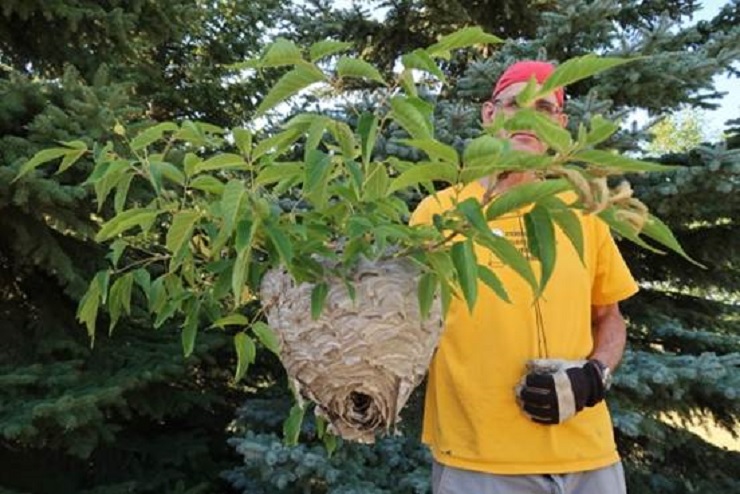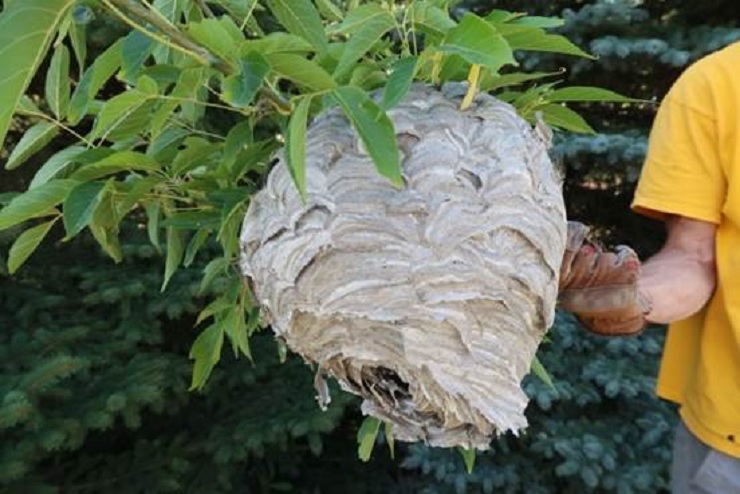A little pest is making the final few weeks of summer challenging for some Manitobans.

“We’ve had a 50 per cent call increase,” Taz Stuart, Entomologist with Poulins Pest Control said. “To put it politely, it’s waspmagedden out there.”
Three people have died in Manitoba this year from anaphylactic reaction to wasp stings according to Acting Chief Medical Examiner, John Younes. Below are the number of people who died from wasp stings in previous years.
- 2014: one person
- 2012: one person
- 2008: one person
- 2004: two people
From patios to garbage bins Stuart said wasps are almost everywhere right now, and while you may not be able to avoid them entirely, there are ways to approach the influx of the insects.
READ MORE: Local entomologist wants to set the record straight on wasps
Stuart said there are traps you can buy that have pheromones inside them, similar to what’s produced by a wasp. The traps have an entrance but no exit and can be thrown away once they’re filled.
There’s also wasp spray that can be used and a special powder that can be bought in hardware stores.

Get daily National news
PHOTOS: Viewer submissions show the busy wasp season in Manitoba
Now, if you want to avoid being stung, experts have a few tips:
- Don’t start jumping around and throwing your hands everywhere
- Don’t whack the wasp or it will send out a signal for more wasps to come over
- Be relaxed and calm if there’s one nearby and you may be able to avoid triggering the wasp
If everything fails and you’re still stung, Stuart said stick to antihistamines and after bite.
While there are many remedies like crushed aspirin, vinegar, or even drawing an x over the sting site, Stuart said none have been proven by experts to be remedies.
Stuart also said while you may want to whack at the wasp when it comes close by, it’s better to remain calm, cool, and collected.
“If you do the flapping arm or the swing and sway, chances are you’re going to hit a wasp it will probably get excited, release an alarm pheromone and attract even more wasps to try and sting you as well,” Stuart said.
Wasp season is all year round but Stuart said once it gets a little cooler outside you can expect to see less wasps swarming you and your food.

-MMC_tnb_3.jpg?w=1040&quality=70&strip=all)














Comments